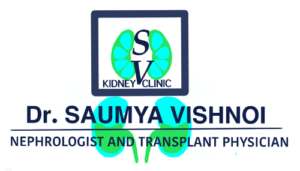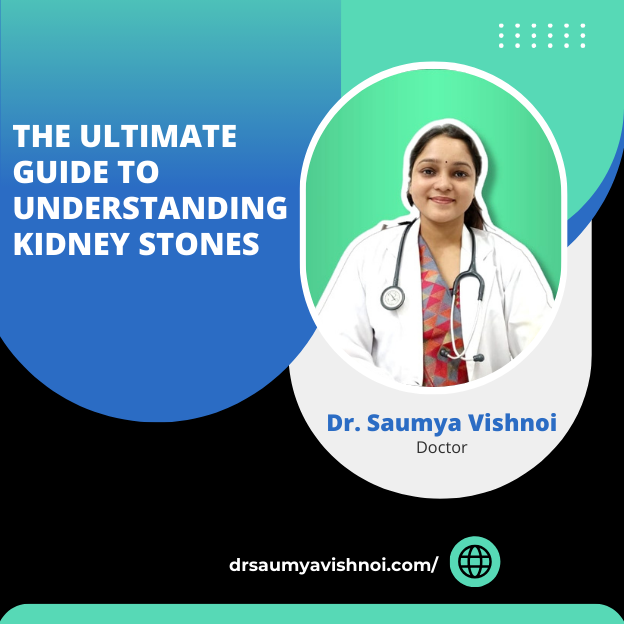Introduction
Welcome to the ultimate guide on kidney stones! In this comprehensive blog post, we will delve into everything you need to know about kidney stones, including their causes, symptoms, prevention strategies, and treatment options. Whether you’re someone who has experienced kidney stones firsthand or simply seeking to learn more about this common condition, you’re in the right place. So, let’s dive in!
What Are Kidney Stones?
Kidney stones are hard deposits that form in the kidneys when certain substances in urine, such as calcium, oxalate, and uric acid, become highly concentrated. These deposits can range in size from a grain of sand to a larger, golf ball-sized stone. Kidney stones can cause severe pain and discomfort as they travel through the urinary tract.
Types of Kidney Stones
There are several types of kidney stones, each formed from different substances. The most common types include:
1. Calcium Stones
Calcium stones are the most prevalent type of kidney stones, accounting for approximately 80% of cases. They form when calcium combines with oxalate or phosphate in the urine.
2. Uric Acid Stones
Uric acid stones develop when there is an excess of uric acid in the urine, often due to a diet high in purines or certain medical conditions like gout.
3. Struvite Stones
Struvite stones, also known as infection stones, form in response to urinary tract infections. They can grow quickly and become quite large if not treated promptly.
4. Cystine Stones
Cystine stones are rare and occur in individuals with a hereditary disorder called cystinuria, which causes excessive cystine in the urine.
Causes of Kidney Stones
Understanding the underlying causes of kidney stones is crucial for prevention. Several factors contribute to their formation, including:
- Dehydration: Insufficient fluid intake can lead to concentrated urine, increasing the risk of stone formation.
- Dietary Factors: Consuming foods high in oxalate, sodium, or purines can contribute to stone development.
- Family History: A family history of kidney stones may increase an individual’s susceptibility to the condition.
- Certain Medical Conditions: Conditions such as obesity, high blood pressure, and digestive diseases can increase the risk of kidney stones.
- Medications: Some medications, such as diuretics and antacids, may promote the formation of kidney stones.
Symptoms of Kidney Stones
Kidney stones often present with unmistakable symptoms, which may include:
- Severe Pain: The most common symptom of kidney stones is intense pain in the back, side, abdomen, or groin.
- Urinary Changes: Individuals may experience frequent urination, urgency, or blood in the urine.
- Nausea and Vomiting: Nausea and vomiting may accompany the pain, particularly as the stone moves through the urinary tract.
- Fever and Chills: In cases of infection-related stones, fever and chills may occur.
It’s essential to seek medical attention if you experience any of these symptoms, as prompt treatment can help alleviate pain and prevent complications.
Preventing Kidney Stones
Prevention is key when it comes to kidney stones. By adopting certain lifestyle changes and dietary habits, you can reduce your risk of developing stones. Here are some tips for prevention:
1. Stay Hydrated
Drinking plenty of water is crucial for preventing kidney stones as it helps dilute urine and flush out substances that could lead to stone formation. Aim to drink at least 8-10 glasses of water per day, and more if you’re physically active or live in a hot climate.
2. Follow a Balanced Diet
Eating a balanced diet that’s low in sodium and oxalate and rich in fruits, vegetables, and whole grains can help prevent kidney stones. Limiting your intake of red meat, processed foods, and sugary beverages is also beneficial.
3. Monitor Calcium Intake
While calcium is essential for bone health, consuming too much calcium from supplements may increase the risk of kidney stones. It’s best to get calcium from food sources like dairy products, leafy greens, and fortified foods.
4. Limit Oxalate-Rich Foods
Certain foods are high in oxalate, a substance that can contribute to kidney stone formation. These include spinach, rhubarb, nuts, and chocolate. While you don’t need to eliminate these foods entirely, moderating your intake may be beneficial.
5. Maintain a Healthy Weight
Being overweight or obese can increase the risk of kidney stones. Maintaining a healthy weight through regular exercise and a balanced diet can help reduce this risk.
6. Monitor Salt Intake
Excessive sodium consumption can lead to dehydration and calcium buildup in the urine, both of which can contribute to kidney stone formation. Limit your intake of processed foods and opt for fresh, whole foods whenever possible.
By incorporating these preventive measures into your lifestyle, you can significantly reduce your risk of developing kidney stones and enjoy better overall health.
Treatment Options for Kidney Stones
While prevention is ideal, sometimes kidney stones still develop. Fortunately, there are several treatment options available to manage stones and alleviate symptoms:
1. Pain Management
For individuals experiencing severe pain from kidney stones, pain medications such as nonsteroidal anti-inflammatory drugs (NSAIDs) or opioids may be prescribed to provide relief.
2. Medical Therapy
Depending on the type and size of the stone, your doctor may recommend medical therapy to help dissolve the stone or prevent its growth. This may include medications to change the acidity of the urine or reduce the formation of certain substances.
3. Extracorporeal Shock Wave Lithotripsy (ESWL)
ESWL is a non-invasive procedure that uses shock waves to break up kidney stones into smaller pieces, making them easier to pass through the urinary tract.
4. Ureteroscopy
Ureteroscopy involves passing a thin, flexible scope through the urethra and bladder to the site of the stone, where it can be either removed or fragmented using laser energy.
5. Surgical Intervention
In cases where other treatments are unsuccessful or the stone is too large to pass on its own, surgical intervention may be necessary. This may involve minimally invasive procedures such as percutaneous nephrolithotomy (PCNL) or traditional open surgery.
Conclusion
Kidney stones can be a painful and debilitating condition, but with the right knowledge and preventive measures, you can significantly reduce your risk of developing them. By staying hydrated, following a balanced diet, and maintaining a healthy lifestyle, you can help keep kidney stones at bay. If you do experience symptoms of kidney stones, don’t hesitate to seek medical attention, as early intervention can make a significant difference in your outcome.

